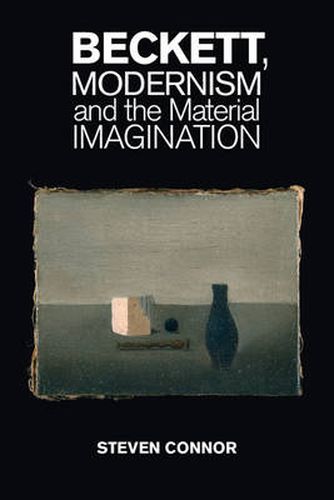Readings Newsletter
Become a Readings Member to make your shopping experience even easier.
Sign in or sign up for free!
You’re not far away from qualifying for FREE standard shipping within Australia
You’ve qualified for FREE standard shipping within Australia
The cart is loading…






Steven Connor, one of the most influential critics of twentieth-century literature and culture, has spent much of his career writing and thinking about Samuel Beckett. This book presents Connor’s finest published work on Beckett alongside fresh essays that explore how Beckett has shaped major themes in modernism and twentieth-century literature. Through discussions of sport, nausea, slowness, flies, the radio switch, religion and academic life, Connor shows how Beckett’s writing is characteristic of a distinctively mundane or worldly modernism, arguing that it is well-attuned to our current concern with the stressed relations between the human and natural worlds. Through Connor’s analysis, Beckett’s prose, poetry and dramatic works animate a modernism profoundly concerned with life, worldly existence and the idea of the world as such. Lucid, provocative, wide-ranging, and richly informed by critical and cultural theory, this book is required reading for anyone teaching or studying Beckett, modernism and twentieth-century literary studies.
$9.00 standard shipping within Australia
FREE standard shipping within Australia for orders over $100.00
Express & International shipping calculated at checkout
Steven Connor, one of the most influential critics of twentieth-century literature and culture, has spent much of his career writing and thinking about Samuel Beckett. This book presents Connor’s finest published work on Beckett alongside fresh essays that explore how Beckett has shaped major themes in modernism and twentieth-century literature. Through discussions of sport, nausea, slowness, flies, the radio switch, religion and academic life, Connor shows how Beckett’s writing is characteristic of a distinctively mundane or worldly modernism, arguing that it is well-attuned to our current concern with the stressed relations between the human and natural worlds. Through Connor’s analysis, Beckett’s prose, poetry and dramatic works animate a modernism profoundly concerned with life, worldly existence and the idea of the world as such. Lucid, provocative, wide-ranging, and richly informed by critical and cultural theory, this book is required reading for anyone teaching or studying Beckett, modernism and twentieth-century literary studies.